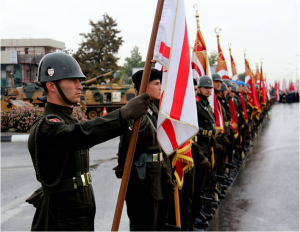By: Gavin Gretsky
Impunity Watch News Staff Writer
STRASBOURG, France – On March 3, 2023, the European Court of Human Rights (ECtHR) issued a decision in the case of Kanatlı v. Türkiye, finding that Turkey violated European Convention on Human Rights (ECHR) Article 9 protections of freedom of thought, conscience, and religion. The violation stems from when Turkey brought criminal charges and punishment against a reservist who refused to comply with the annual mandatory one day of military service because he was a conscientious objector.
 |
The applicant in this case, Murat Kanatli, is a resident of the Turkish Republic of Northern Cyprus and was a member of the Turkish-Cypriot security forces in 2005 as part of the Military Service Act which imposed mandatory military service. Under the Military Service Act, following active-duty service Mr. Kanatli was expected to serve as a reservist by performing one day of military service in military barracks. Mr. Kanatli performed this duty for three years in 2006, 2007, and 2008.
Following his service is 2008, Mr. Kanatli became the Cypriot representative for the European Bureau for Conscientious Objectors and was elected to the executive committee of the organization in 2009. A conscientious objector is an individual who is opposed to serving in the armed forces and/or bearing arms on the grounds of either moral or religious principles. Mr. Kanatli then refused to serve his one day of mandatory military service in 2009 because of his pacifist and anti-militarist beliefs.
Because of this refusal, the military prosecutor’s office brought criminal proceedings against Mr. Kanatli. Mr. Kanatli challenged the constitutionality of the Military Services Act because it gave no substitute civilian service option for those opposed to compulsory military service. In 2013, the Supreme Military Administrative Court held that the Military Services Act was constitutional and imposed a fine of 167 Euros which could become a punishment of ten days imprisonment if there was a failure to pay. Mr. Kanatli refused to pay and served his ten days in jail. Mr. Kanatli also refused his annual military service in 2010 and 2011, resulting in two more criminal proceedings which were later dropped.
Mr. Kanatli filed his case against Turkey with the European Court of Human Rights in 2015, arguing that the mandatory military service without the option for civilian service as a substitute violated Article 9 of the ECHR. Specifically, Mr. Kanatli argued that the Military Service Act, and his convictions under the statute, violated Article 9 freedom of thought, conscience, and religion. The ECtHR stated that the freedom of conscience was unreservedly protected and was guaranteed by the ECHR. The Court held that Turkey did violate the ECHR because the legislation required military service but did not provide any provisions for conscientious objectors to perform an alternative service and only prescribed criminal proceedings for these individuals.
Because of this violation, the ECtHR declared that Turkey must pay Mr. Kanatli 9,000 Euros in damages and 2,363 Euros in costs and expenses.
For further information, please see:
Cyprus Mail- Turkey Fined Over Cypriot Conscientious Objector- 13 Mar. 2024
Philenews- Turkey Breaches Rights of Cypriot Conscientious Objector: European Court – 13 Mar. 2024



